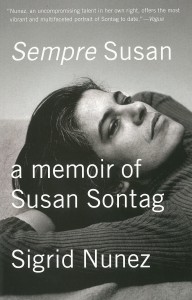“I’ve never actually applied for a traditional job,” my thesis advisor told me over lunch, explaining that she’d gone straight from undergrad to a PhD program. We were out at a vegetarian restaurant, celebrating my completed thesis essay, and the tables that surrounded us were mostly empty. Sparsely-populated storefronts were an ongoing theme of college life: On weekday afternoons, when people like us had the freedom to go out, most people were on the 9-to-5 grind.
While my advisor’s words made sense, I felt a little startled and let down. People I admired and trusted, throughout the Spanish department and my entire fancy school, seemed to have their hands tied when it came to post-grad life. My professors had guided me through centuries’ worth of literature in two languages, but they couldn’t seem to help me get paid to take calls for some arts organization.
My thesis advisor had been my instructor before she took on my project, a 50-page behemoth in a language no one in my family spoke. For about 21 weeks of my senior year, she and I met biweekly to talk about my progress on my honors essay. She was still an assistant professor, and it was her first time acting as an advisor—in a sense, we were mentoring each other, both of us eagerly trying to grow into our roles.
I felt like I was learning unbelievably fast. My subsections would come back with pinkish-red notes in the margin—suggestions for clarification or corrections in my Spanish-language grammar. I’d been writing about Frida Kahlo, and by proxy, the Mexican Revolution, feminism, Guillermo Kahlo, the concept of mestizaje, leftist nationalism, and modernity. The sheer volume of writing about each of those topics—about everything we covered in Spanish classes—excited and overwhelmed me. That was the main advantage of studying Spanish: it’s a language that’s so widely-spoken by such diverse populations, it opens the door to limitless histories, literatures, and ideas. The world was always getting bigger for me.
My advisor used to fill brightly-colored Post-It notes with new essays to read and new subtopics to research, marking salient ones with stars. Her desk was stacked with the tomes that couldn’t fit on her floor-to-ceiling bookshelves, a handful of titles that I recognized and many more that I did not. These meetings distilled everything I loved about college, where imagination, curiosity, and analytical ability were celebrated more fervently than anywhere else I’d encountered. I once stayed in my advisor’s office for an agenda-less half hour, talking about how quality of life in Cuba compares to quality of life for low-income people in the United States.
And then it ended.
I knew before I matriculated that my college career would conclude in the spring of 2010, but somehow, it still snuck up on me. Graduation brought ample fanfare from the department and the school at large—a prize for my thesis, an honors ceremony, an honors society, and a magna cum laude distinction—that nonetheless left me with a vague, mildewy feeling of apprehension. My mom lost her job a month before I graduated, and my brother graduated from law school without any job offers. My pipe dream was to take my savings to New York City, but without a job or a financially stable family, I had to put that away. That summer, there was nothing on the horizon for me to look forward to. No one helped me focus my thoughts, the way my advisor had in college, and all reassurance seemed hollow when cast against the backdrop of 2010’s recession economy. Every day, when I wasn’t checking groceries, I took long walks around my half-empty college town. It was a 10-minute walk to Lake Michigan, and I went there repeatedly, in a stupor. It was exceptionally hot. I didn’t know how to fill my days anymore.
With my tail between my legs, I applied for Chicago-area jobs and landed one with an up-and-coming tech startup. I used my last drops of Whole Foods dental insurance on wisdom teeth removal, and I was high on Vicodin, holding a bag of ice to my cheek, when the recruiter called me for an interview. Even at $25,000 a year, it was a godsend. I should have been happy. I reminded myself of what I should’ve felt almost every day.
The job itself was tedious and procedural. You did it best by doing it quickly, for long stretches of time, without fucking up. Though I liked my coworkers and my benefits and my boss, the fact remained that I could have done that job when I was still in high school. Intellectually speaking, I had no variety in my diet—think of eating unseasoned spaghetti for every meal of every day. I longed to be back in my advisor’s office, reading new authors every week. Graduating from college didn’t feel like moving into the big, promising world; it felt like being asked to forget about the most fulfilling work I’d ever done. I spoke only English, and my formerly expanding world shrank until it was oppressively small. Everything felt flat. When I emailed my former professors it seemed like they were in a different world, because they were.
“Think of it like, you have two careers,” my older brother said. “You have your school career and your job. It’s like starting over at Kindergarten.”
On rare occasion, I still speculate about the alternate-universe scenario, in which I landed a publishing job and moved to New York City. Sometimes I try to convince myself that It Would Have Sucked Anyway, and some evidence supports that: I hear about low salaries, long hours, slow rates of promotion, and little job security. But when I’m being completely honest with myself, I can admit I probably would have loved it. I wanted to wind up there for the same reason I wound up writing this essay—because I love books. It’s some consolation to remember that getting everything you want is 100% bad for you, that disappointments large and small are part of the human condition. Someone who was never disappointed, frightened, or insecure could never be a writer.
A promotion in my fast-growing company meant more creative work and higher pay. I’m even about to go back to school for translation through a web-based program offered by NYU; I’m hoping translation will re-introduce the eclecticism of my college reading. When I first started working full-time, I tried to draw a line between adjusting and settling, and in the process I did neither. But as time wore on—because time wore on—I got the hang of it.
At times when it seems like the world has no use for me, had no interest in anything I value, I remember my professors and their ability to make their passions the center of their lives. In a way, graduation destroyed my idyllic mentoring relationship with my advisor and the rest of the department, but in another way, the strength of that relationship redoubled. I am sure, now, that there is a place where people value what I value. I can visualize it, the professors’ cramped offices and the off-white tile floors and the way campus smells in spring—like someone whacked a sneaker against the pavement to release dirt and grass. It is my home base.
When I was still in college, I checked groceries alongside an immigrant mom whose kid (I faintly remember him being a babe) was studying philosophy.
“What can he do with that degree?” she asked me, more out of befuddlement than dismay. I told her that maybe he could teach, but I wasn’t sure how valuable his degree would ever be. My coworker held three jobs and had barely any time to study English, which she eagerly wanted to do. It was easy to see how her son’s choice could seem wasteful or ungrateful. On the other hand, his mother spent much of her life making decisions based on financial return versus money and time invested. One of the things she earned—maybe – is for her son to escape that burden. Maybe for four years, he just gets to be happy. And maybe that leads to a job, and maybe it doesn’t immediately, or ever. Four years is still more than most people get.



